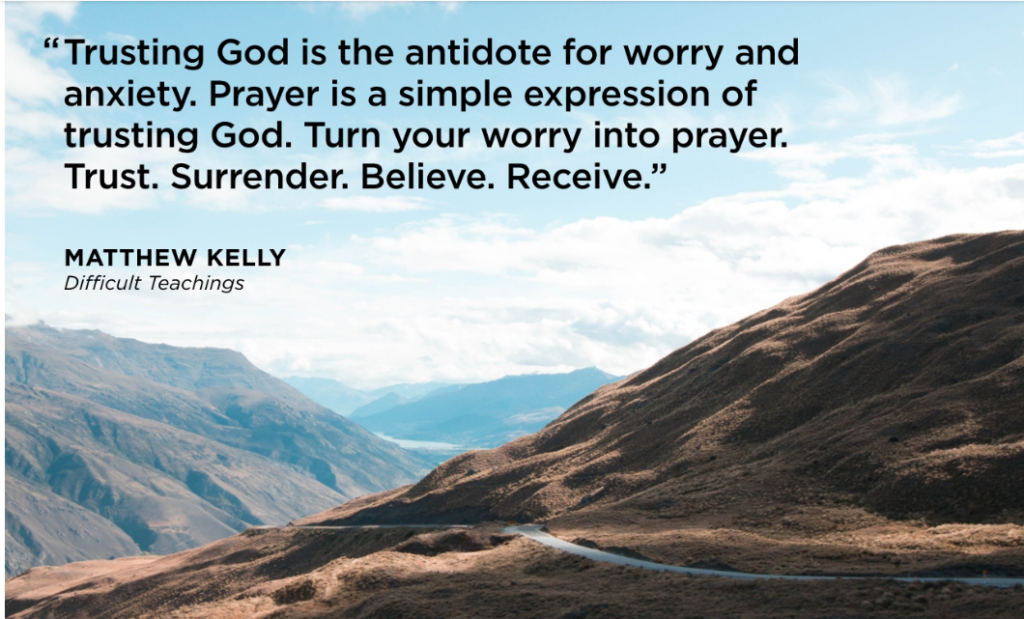
Daily Reflection – Prayer is Sitting on a Plane


416 N 2nd St, Albemarle NC 28001 | (704) 982-2910




Sustaining them in these trials was the work of prayer. To such communities the church entrusted the “office” of praying the liturgy of the hours. The day—and night—was punctuated by formal prayer. In this way hymns, psalms, and prayers—recited or sung—would continually rise from earth to heaven. In this way the glory of God never ceased to be celebrated and the needs of humankind never ceased to be a source of trusting petitions. If those first sisters did, indeed, count the insults and privations as “great delights” what would explain such joy but the exaltation that flows from a love that “surpasses understanding.”
It was through the daily cycle of prayer that such “blessed assurance” grew in them. The rounds of hours of the breviary brought the richness of psalms and Scripture texts into dialogue with their daily tasks. Meditation upon the Byzantine Cross, the adoration of the Eucharist, attending Mass, hearing sermons—all gave new meaning to each day’s trials or triumphs. Weaving prayer and productive work created the balance within their hearts and minds that allowed them to keep moving. The poor sisters lived filled with consolation, with assurance. They dared to believe that promise of Jesus. They were learning that he was true to his word and their joy was, indeed, full and free. They learned to reverse their own standards of judgment in favor of the riddle that calls one to lose life in order to gain it. That women could live without the safety net of approved monastic vows and ample endowments and follow Christ in such literal fashion was news indeed. And the women themselves were the first to understand that.
— from the book Light of Assisi: The Story of Saint Clare
by Margaret Carney, OSF

Only when inner and outer authority come together do we have true spiritual wisdom. We have for too long insisted on outer authority alone, without any teaching of prayer, inner journey, and maturing consciousness. The results for the world and for religion have been disastrous. I am increasingly convinced that the word prayer, which has become a functional and pious thing for believers to do, is, in fact, a descriptor for inner experience. That is why all spiritual teachers mandate prayer so much. They are saying, “Go inside and know for yourself!” We will understand prayer and inner experience this way throughout this book. As Jesus graphically puts it, prayer is “going to your private room and shutting the door and [acting] in secret” (Matthew 6:6). Once you hear it this way, it becomes pretty obvious.
— from the book Things Hidden: Scripture as Spirituality by Richard Rohr, page xv
//Franciscan Media//


The mystery of being human lies in the mystery of desire, which shapes our lives and can change us. Only prayer can transform us into what we desire, that is, if we truly desire God. Prayer is to make real the Word made flesh—in our lives and in our world. Prayer is the Spirit of the Word that transforms our flesh into the body of Christ. It is an awakening to who we are in Christ and to the fact that we are the path to peace. The Franciscan path of prayer leads one to proclaim by example and deed: Jesus Christ lives!
— from the book Franciscan Prayer

The Franciscan path of prayer that leads to peace is a path of transformation and witness. Christ is proclaimed not by words but by the example of one’s life, one’s willingness to suffer or perhaps offer one’s life for the sake of another. Christ lives in that Christ lives in us––in our bodies, our hands, our feet and our actions. This is the challenge for our time with its emphasis on rationality and materialism, the challenge of divine risk, of allowing God to enter our lives and lift us out of the doldrums of mediocrity, privatism and individualism. We are called to be vulnerable to grace so that we may be transformed into the living Christ.
—from the book Franciscan Prayer
//Franciscan Media//

Prayer that allows the mystery of Christ to change our lives, is a high-risk enterprise—an uncontrollable experience. Yet, the power of God’s grace is such that one who, like Francis of Assisi, is able to trust God sufficiently can enter into the “cave” of the heart, the place where Incarnation takes place, and be transformed into the triumph of love. Franciscan prayer, therefore, is Christ-centered, affective, contemplative, cosmic and evangelizing. The goal of prayer is to make Jesus Christ alive in the believer. To bring Christ to life is the way to peace.
—from the book Franciscan Prayer
//Franciscan Media//

Franciscan evangelical life strives to live in this mystery more deeply through a life of unceasing prayer. God is to descend and take on flesh anew in our lives through the indwelling Spirit that joins us to Christ and expresses itself in the body of the believer. Prayer is the breath of the Spirit within us, the Spirit who brought about the Incarnation of the Word of God and who continues to incarnate the Word in our lives. The one Spirit who joins together the Father and Word in love brings us finite creatures into this infinite relationship of love. Because the one Spirit is sent by the one Christ, the fullness of Christ is the fullness of love that is the work of Spirit. The Spirit not only forms one to Christ but brings all into unity in Christ.
— from the book Franciscan Prayer
//Franciscan Media//